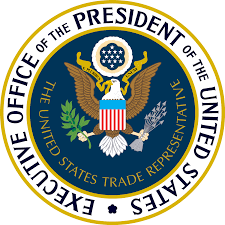 Every year, the Office of the United States Trade Representative (USTR) publishes a Review of Notorious Markets for Counterfeiting and Piracy, known widely as the Notorious Markets List. The report highlights online and physical markets that reportedly engage in or facilitate substantial trademark counterfeiting and copyright piracy. The USTR requests comments and rebuttal comments from civil societies to identify online and physical markets for inclusion.
Every year, the Office of the United States Trade Representative (USTR) publishes a Review of Notorious Markets for Counterfeiting and Piracy, known widely as the Notorious Markets List. The report highlights online and physical markets that reportedly engage in or facilitate substantial trademark counterfeiting and copyright piracy. The USTR requests comments and rebuttal comments from civil societies to identify online and physical markets for inclusion.
The USTR is an agency under the federal government. The head of the Office serves as the U.S. President’s primary advisor, who reports to the President’s Executive Office and develops foreign trade policies. The unique advisory position of the USTR makes the Notorious Market List report critical because it influences tens of thousands of Americans’ daily transactions on eCommerce and dictates US export-import trade policies.
However, in recent years, an increasingly large amount of public comments confuses direct Intellectual property infringers with neutral technology infrastructure operators and internet service providers. The USTR had wrongfully listed several such third-party technical operators and infrastructure providers as the Notorious Markets. This Notorious Market designation for neutral technology intermediaries has several harmful implications. Designating Internet providers as Notorious Markets stifles free speech, impedes fair competition, curtails innovation, and facilitates actual IP infringement. These technology infrastructure companies are, in fact, a part of the creative effort to combat global IP infringement and should receive support from the USTR.
IP Justice participated in the rebuttal comments and urged the USTR to narrow the Notorious Market definition to include only those actual Intellectual property infringers, rather than listing generic, third-party internet intermediaries and technology providers. IP Justice strongly believes there is a significant difference between the parties directly trading products and the internet providers that simply maintain the technical infrastructure.
IP Justice encourages the USTR to adopt best practices developed in consultation with civil society and industries. Additionally, IP Justice suggests that the USTR address the concerns of neutral technology intermediaries in the joint effort to combat the harms of those who directly provided infringing materials.
Several federal circuit precedents had shown support for technology infrastructure operators not to be liable for Intellectual Property infringement. In Perfect 10 v. Amazon, the Ninth Circuit held that Google does not distribute copies of the infringing photographs, and Google is not liable for IP infringement because it did not store the materials on the server. Google’s search engine only communicates HTML instructions and tells a user’s browser to find images on a website publisher’s computer. Furthermore, the 2nd Circuit held in Tiffany v. eBay that the website was not liable for Tiffany’s trademark infringement because it was the trademark holder’s responsibility to enforce the mark. eBay had no specific knowledge of the infringement alleged.
These analyses could be applied to refute Amazon, Google, Snapchat, and eBay’s nomination and many others as the Notorious Markets by the USTR. The USTR should not usurp the role of Congress and the courts in making law and should leave the legislature and the judiciary to decide.
We should protect third-party technical operators and infrastructure providers who are necessary to maintain a stable and interoperable Internet for the benefit of countless users and customers online. Most importantly, protecting communication platforms is essential for freedom of speech. The Notorious Markets designation unfairly burdens platforms with content moderation authority and duties.
Click here for the full IP Justice’s Rebuttal Comment to the USTR 2021 Review of Notorious Markets for Counterfeiting and Piracy.